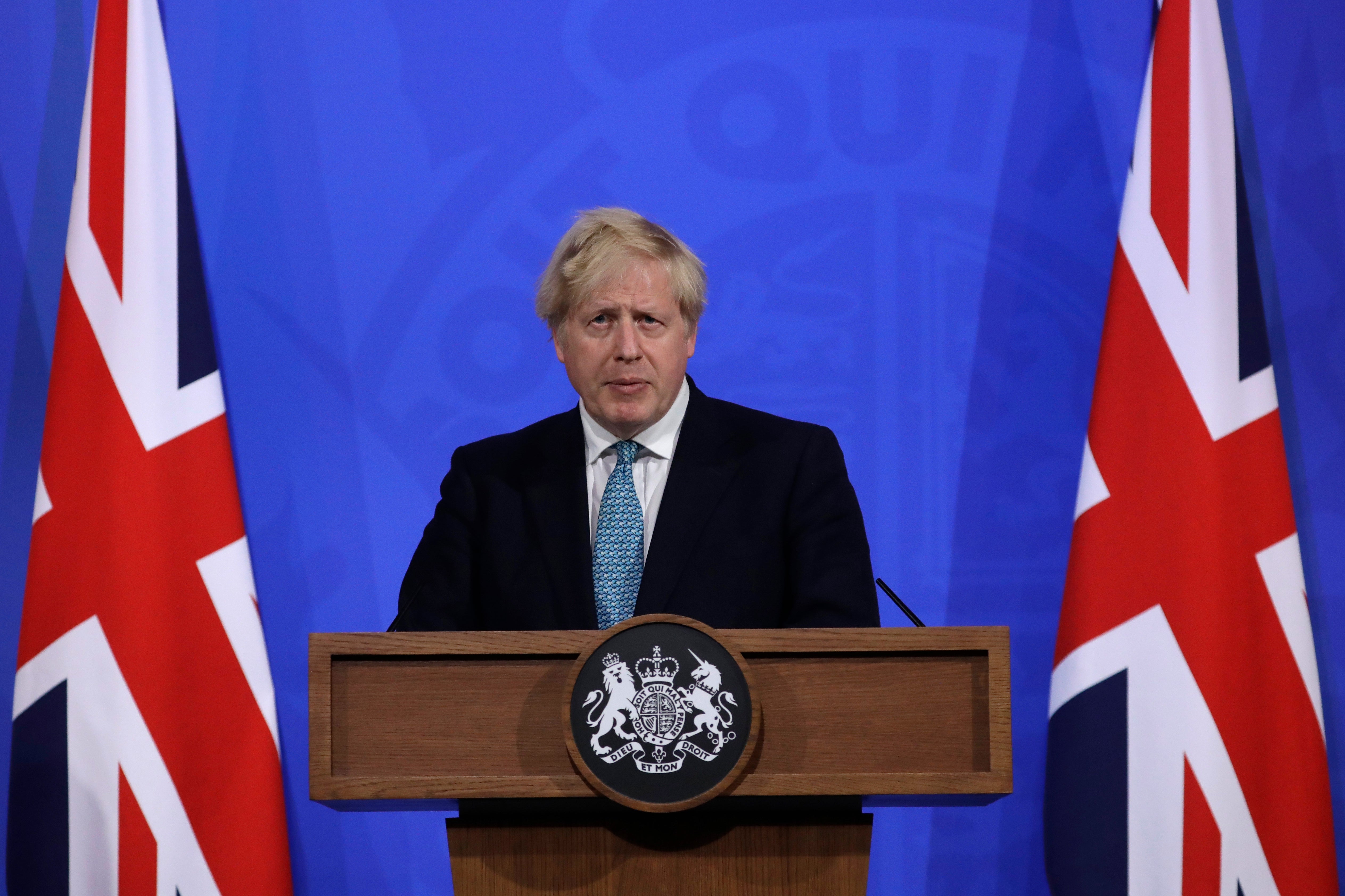The new No 10 delivery unit has the potential to turn Boris Johnson’s rhetoric into real world outcomes
To gain cut-through, the No 10 Delivery Unit will need a supreme ability to form resilient working relationships with ministers, senior officials and special advisers


Support truly
independent journalism
Our mission is to deliver unbiased, fact-based reporting that holds power to account and exposes the truth.
Whether $5 or $50, every contribution counts.
Support us to deliver journalism without an agenda.

Louise Thomas
Editor
Dominic Cummings described Boris Johnson as a “shopping trolley” prime minister “smashing around from one side to the other”. His seven-hour tirade last month was a damning portrait of a leader who, according to Cummings, is unfit for office.
The originator of the “shopping trolley” phrase was Johnson himself — a political leader who sometimes shows a surprising degree of self-knowledge. So should we see the creation of a new No 10 delivery unit as an attempt by Johnson to overcome his avowed limitations?
The unit was set up on the advice of Sir Michael Barber, brought in by Johnson because of his experience of delivery under Tony Blair. “The single most important characteristic in a political leader,” said Sir Michael at a recent Strand Group event, “is self-knowledge. Knowing what you’re really good at; also knowing that there are things you’re not really good at.”
It seems that Johnson has passed the first test of turning electoral victory into effective change, by being self-aware enough to draw to him the people who know how to create the mechanisms of delivery. The No 10 delivery unit will be headed by Emily Lawson, who has won plaudits for her leadership of the NHS vaccination programme.
But history tells us that the success of such initiatives depend on the investment of political capital by the prime minister. I studied the story of the Blair delivery unit in my research based on Sir Michael’s unpublished diaries, and the two most important lessons are that it was led by the right person, who was politically astute and able to create new levers of power, and that it had the prime minister’s unwavering support.
That did not mean that Blair devoted a lot of time to the unit – the whole point was to free him to focus on the constant crises and challenges that beset any leader. But he was rigorous in making time for “stocktakes” — quarterly meetings with Sir Michael and secretaries of state to chase progress.
When the unit was set up at the start of Blair’s second term, Gordon Brown and his chief adviser Ed Balls tried to contest its creation. Brown regarded domestic reform as his domain, driven by public service agreements, which tied departmental funding to targets set by the Treasury. The delivery unit would be dead on arrival if it could not find a way to navigate the Blair-Brown power struggle.
Eventually, Jeremy Heywood, Blair’s principal private secretary, Balls and Sir Michael negotiated a “memorandum of understanding” that set the rules of engagement between the new delivery unit, the Treasury and the delivery departments. As a result, the Chief Secretary to the Treasury, initially Andrew Smith, attended stocktakes.
Other cabinet ministers complained to Sir Michael about “dual accountability” to both Brown’s cabinet committee on public expenditure and the new delivery unit for different targets.
Johnson’s delivery unit will face the same challenge as Blair’s in overcoming the resentment of cabinet ministers about interference in their departments. Sir Michael succeeded in persuading them he was on their side, that his unit acted as what one of them called a “transmission belt” to relay intractable issues back to the prime minister, which he could often unlock.
The No 10 delivery unit will have to follow its predecessor in transforming stirring prime ministerial rhetoric to “level up” the country and “repay” younger generations who’ve suffered a “loss of learning” during the pandemic into deliverable outcomes, and then pursue them with ruthless prioritisation.
The Blair delivery unit managed to establish itself in Whitehall so that when 9/11 and the invasion of Iraq in 2003 distracted the prime minister, it was able to keep his focus on the delivery agenda.
After the invasion of Iraq, a senior adviser in No 10 questioned whether Blair needed to be involved in stocktakes at all if they had worked without him. Sir Michael explained the risk this posed to the work of the unit and suggested Blair could reduce the amount of time he committed to stocktakes.
The Barber compromise was accepted and the unit was able to remain effective. Emily Lawson may have to conduct similar negotiations when the prime minister’s time and attention is drawn towards future crises – or diverted elsewhere.
One true thing Cummings said in his rose garden news conference — when he explained why he hadn’t told Johnson the details of his trip to Durham — was: “The prime minister’s time is just about the most valuable commodity there is in the government.” A delivery unit is a good way to make best use of it.
Blair’s delivery unit made significant progress in turning investment and reform into real world outcomes. A former senior cabinet minister who worked with the unit told me that it was “the biggest single contributor” to the delivery of public service reform.
A final lesson on the art of delivery. To truly gain cut-through, the No 10 delivery unit will need a supreme ability to form resilient working relationships with ministers, senior officials and special advisers. It will need to do this quickly and to be continuously attentive to the shifting geography of power.
Relationships were the lifeblood of Blair’s delivery unit. Just six months in, one of the most experienced Whitehall power brokers told Sir Michael: “You’ve massively increased the power of the prime minister without damaging any relationships.”
This is the true power of a successful delivery unit, and what awaits Johnson if he can consistently direct focus and political capital to its work.
Dr Michelle Clement is a lecturer and researcher on reform and delivery in government at The Strand Group, King’s College London
Join our commenting forum
Join thought-provoking conversations, follow other Independent readers and see their replies
Comments